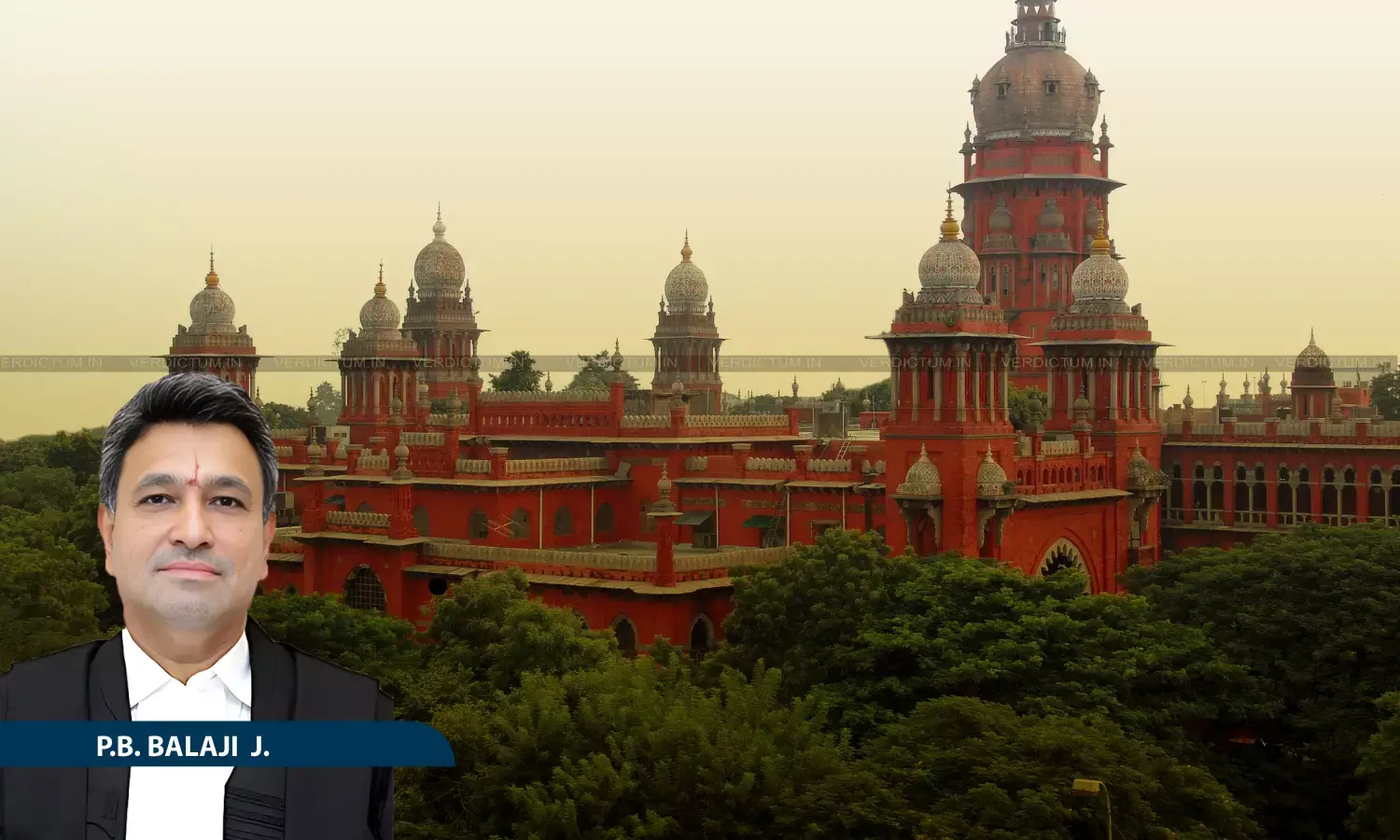Airline Liable For Negligence Of Caterer: Madras High Court Orders Air India To Pay Compensation To Passenger For Contaminated Food Served Onboard
The High Court held that an airline cannot evade liability for negligent catering services provided during a flight, ruling that the passenger’s contract exists solely with the airline and not with the caterer.

Justice P.B. Balaji, Madras High Court
The Madras High Court has held that a passenger’s contract of carriage with an airline includes the obligation to provide safe and hygienic food on board, holding that a passenger has no privity of contract with the caterer.
The High Court was hearing an appeal filed by Air India challenging a trial court decree that directed payment of damages to a passenger who discovered hair strands in the meal served on a flight from Colombo to Chennai.
A Bench comprising Justice P. B. Balaji, while stating that the ticket cost borne by a passenger is paid to the airline, observed that “the plaintiff has absolutely no privity of contract with the caterer and the food and other beverage services that are provided by the defendants to the passengers on board in their aircraft is an independent contract between the defendants and the caterer.”
Advocate S. Satish Kumar appeared for the appellant airline, while Advocate R. Subramanian appeared for the respondent passenger.
Background
The passenger had travelled on an Air India flight from Colombo to Chennai and was served a pre-packed meal on board. Upon opening the sealed food packet, he found hair strands in the meal and immediately brought it to the attention of the cabin crew. The passenger claimed he experienced nausea and stomach discomfort following the incident.
On landing, he lodged a written complaint with the airline and later filed a civil suit seeking ₹11 lakh as damages for negligence and mental distress. The airline, while admitting that the food was supplied by its contracted caterer, denied direct liability and argued that the plaintiff should have impleaded the caterer as a necessary party to the suit.
The trial court, however, rejected this contention and held Air India liable, awarding ₹1,00,000 in damages to the passenger. Aggrieved, the airline approached the High Court in appeal.
Court’s Observation
The Madras High Court rejected the airline’s argument that the suit was bad for non-joinder of the caterer. It held that the contract between the passenger and the airline, represented by the ticket, covered all services, including in-flight meals. The Bench observed that “as far as the plaintiff is concerned, his contract is only with the defendants and the ticket cost includes the food being provided to the plaintiff on board the aircraft.”
The Bench further held that the airline’s contractual relationship with its caterer was an internal arrangement and could not absolve it from its responsibility towards passengers. The Court stated that the food served on the flight formed part of the consideration paid by the passenger under the contract of carriage and, therefore, the airline remained vicariously liable for negligence in service.
Applying the principle of res ipsa loquitur, the Court observed that the discovery of hair strands in the sealed food packet was itself sufficient to establish negligence, holding that “the onus of proving the contrary shifts to the respondent who is alleged to have been careless and negligent.”
However, while affirming the airline’s liability, the Court noted that the passenger had not produced any medical evidence of physical harm or pecuniary loss.
Conclusion
Accordingly, the Madras High Court reduced the compensation amount from ₹1,00,000 to ₹35,000 but upheld the trial court’s finding of negligence.
Cause Title: General Manager, Southern India Region, Air India Ltd. v. P. Sundarapariporanam (Neutral Citation: 2025:MHC:2366)
Appearances
Appellant: Advocate S. Satish Kumar
Respondent: Advocate R. Subramanian


